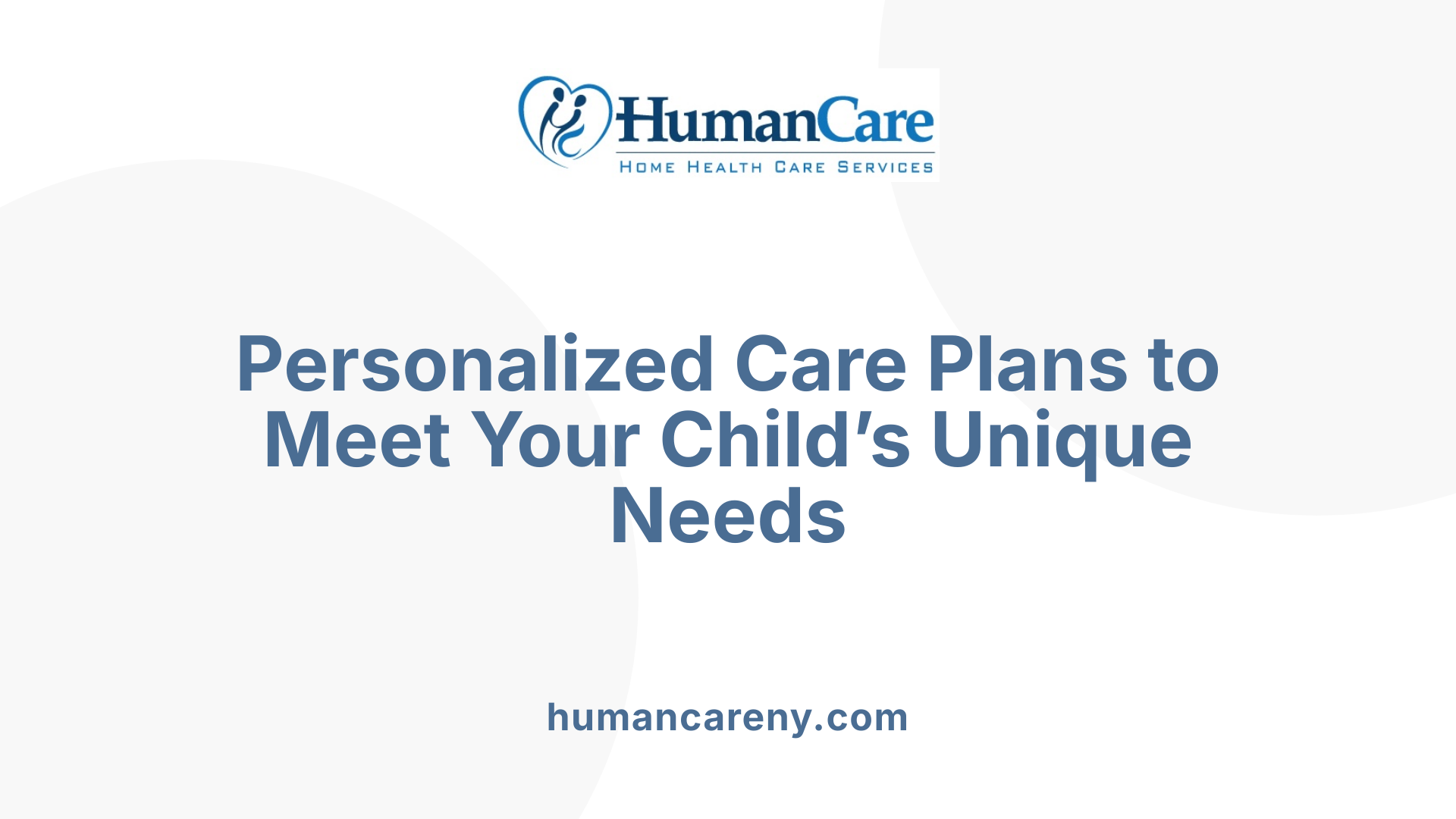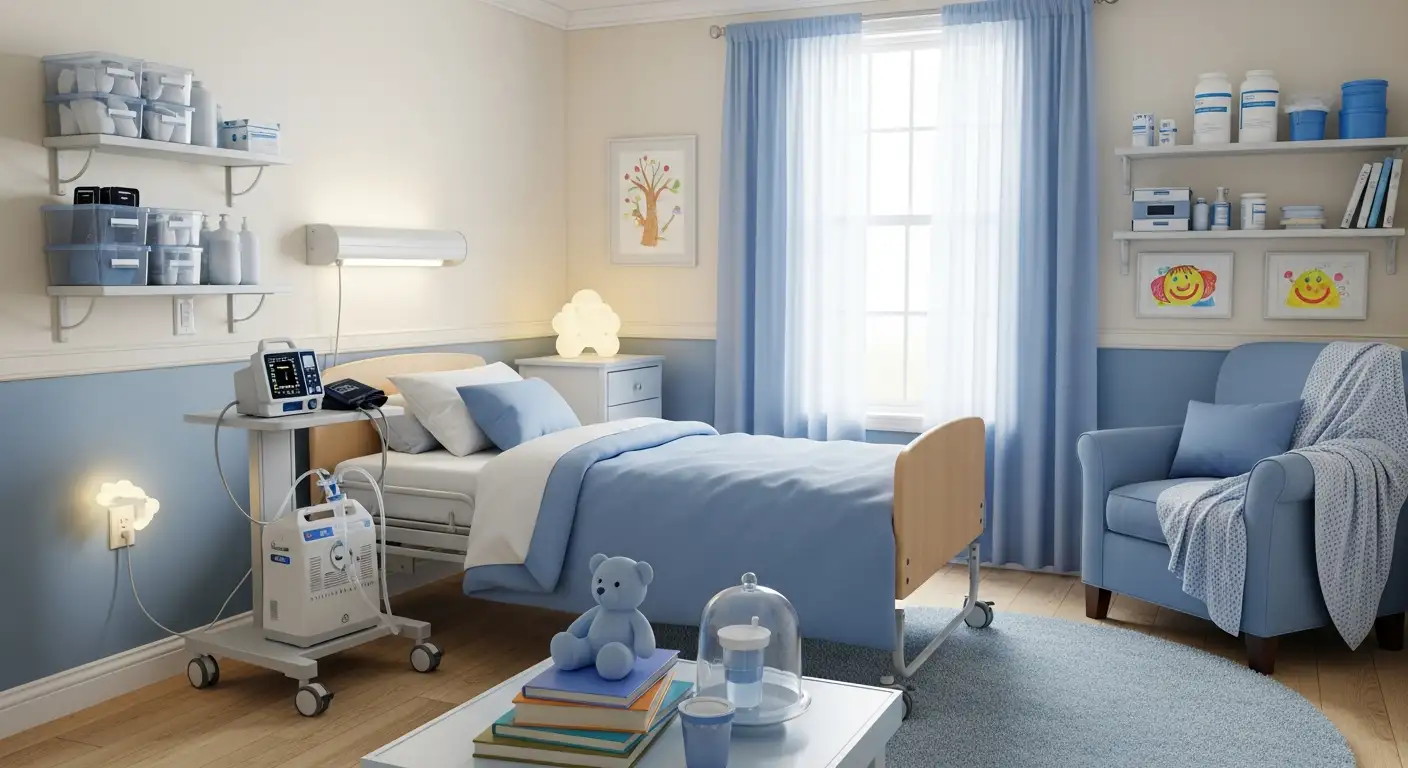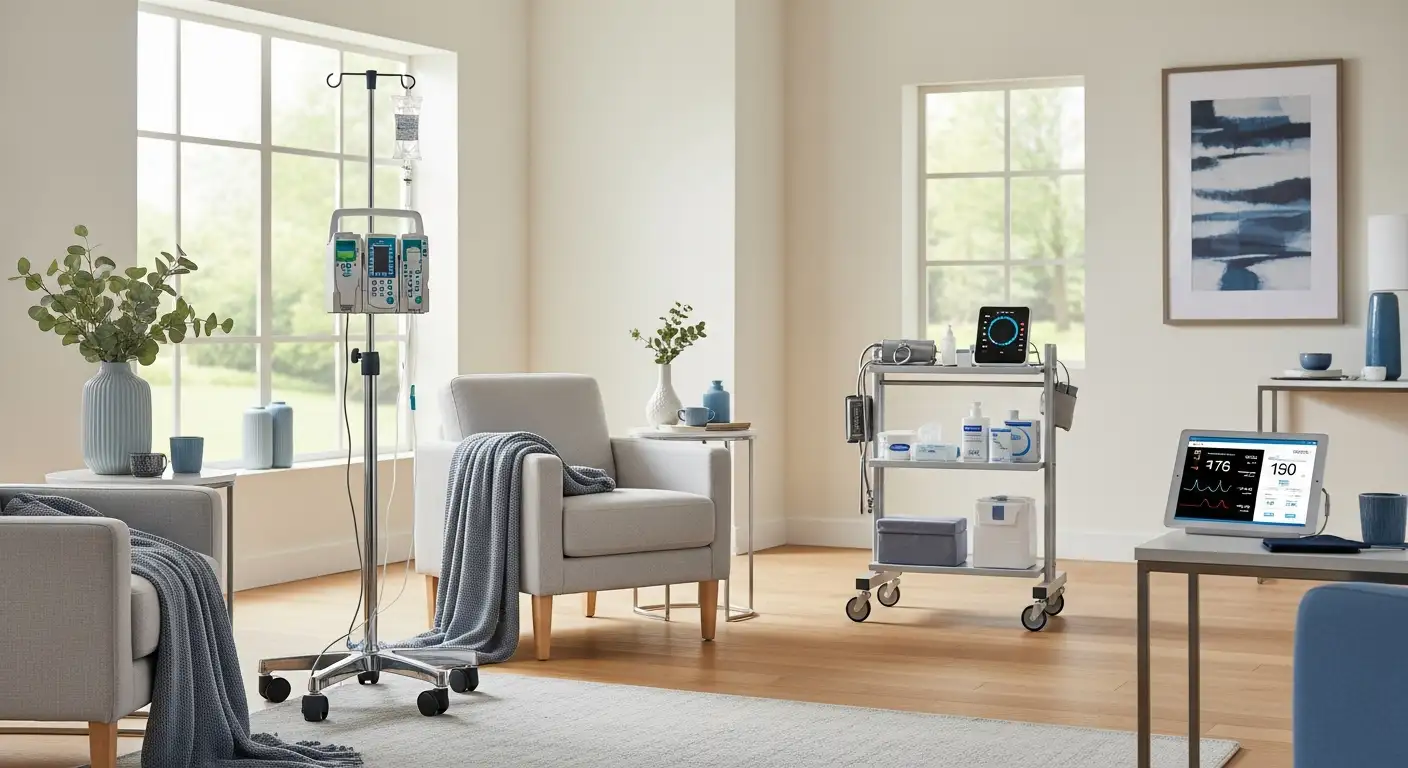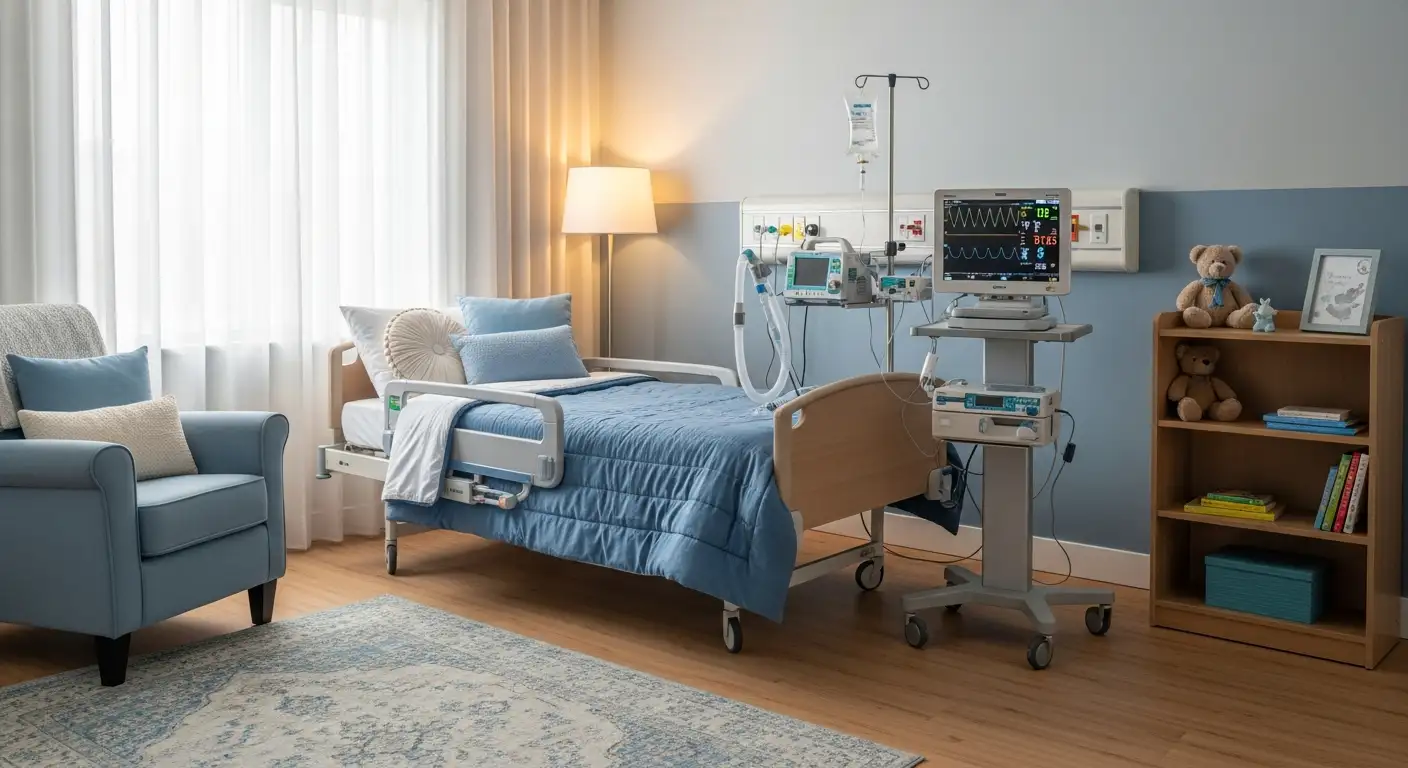Understanding What Constitutes an Outstanding Pediatric Home Care Provider
Pediatric home care plays a vital role in supporting children with complex medical needs by delivering personalized, professional healthcare within the comfort of their homes. Establishing what makes a pediatric home care provider exemplary involves examining the services offered, qualifications of care professionals, safety standards, family collaboration, and quality assessment criteria. This article delineates these critical elements to help families and healthcare stakeholders identify and partner with outstanding providers, ensuring the best outcomes for children.
Comprehensive Range of Services Tailored to Pediatric Needs

What types of services are typically offered by reputable pediatric home care providers?
Trusted pediatric home care providers deliver a diverse array of services designed to meet the complex medical and developmental needs of children. These services are personalized, ensuring that each child's care plan is tailored specifically to their health conditions and daily routines.
One of the main components is medical treatments and medication management. Skilled nurses and physicians oversee and administer medications, including injections, IV therapies, and other specialized treatments. They also develop and implement plans for infusion therapy, which includes intravenous nutrition and medication delivery tailored to the child's needs.
Infusion and respiratory therapies form a vital part of pediatric home care. Children dependent on ventilators or oxygen support benefit from regular respiratory therapy sessions, while those requiring nutritional support may receive parenteral nutrition through infusion therapy. Medical equipment such as ventilators, feeding tubes, and oxygen tanks are provided and maintained to ensure safety and proper function.
Specialized therapies—such as physical, occupational, and speech therapy—are frequently integrated into home care plans. These therapies support children’s physical development, help improve motor skills, communication, and cognitive functions, and promote independence.
Additional care services include wound care, tracheostomy management, and ventilator support. For children with surgical wounds, infections, or wounds related to chronic conditions, trained professionals perform dressing changes and monitor healing. For children with tracheostomies or those on mechanical ventilation, caregivers are taught and supported in managing these devices safely}
Family education and training are critical aspects of pediatric home health services. Providers educate parents and family members on emergency procedures, medication administration, equipment use, and safety protocols. This ongoing training empowers families to confidently care for their children at home, reducing hospital readmissions and ensuring continuous safety.
These comprehensive services are delivered by a multidisciplinary team, including registered nurses, respiratory therapists, physical and occupational therapists, speech-language pathologists, social workers, and aides. The team works cohesively to develop and implement individualized care plans that adapt as the child's needs evolve.
High-quality pediatric home care emphasizes family involvement, effective communication, and coordination with healthcare providers. It also offers 24-hour emergency support to address urgent needs promptly, creating a safe, supportive, and comfortable environment for the child's ongoing recovery and development.
Overall, reputable providers prioritize creating a holistic, responsive service that enhances the child's health, comfort, and quality of life within the familiar surroundings of home.
Qualifications, Training, and Expertise of Pediatric Care Providers

What qualifications and expertise should pediatric care providers have?
Pediatric care providers must possess specialized education, training, and licensing to deliver safe and effective services for children. Most are registered nurses, pediatricians, or other licensed healthcare professionals with specific qualifications in pediatrics.
To ensure high-quality care, these professionals typically hold valid certifications and licenses issued by relevant health authorities. Their credentials confirm their competence in handling the unique medical needs of children.
Experience plays a crucial role in pediatric home health care. Providers should have a background working with children who have various health conditions, including complex and chronic illnesses. This experience helps them develop the skills needed to manage diverse medical situations, tailor care plans, and respond effectively to emergencies.
Developing personalized care plans is another vital skill. Providers must assess each child's medical condition, developmental stage, and family environment to create tailored interventions. This requires strong analytical skills and the ability to coordinate care with families and other health practitioners.
A thorough understanding of pediatric medical equipment and therapies is essential. Providers should be knowledgeable about devices like feeding tubes, ventilators, and monitors, as well as therapies such as physical, occupational, and speech therapy. Familiarity with these tools allows caregivers to manage treatments safely at home.
Building trust with families is fundamental to successful pediatric home healthcare. Competence, patience, and compassion are necessary qualities that help foster a caring environment, encouraging families to actively participate in their child's care.
Experience with complex and chronic conditions
Children with complex medical needs require providers with specific experience. Managing conditions like cystic fibrosis, cerebral palsy, or immunodeficiency demands an in-depth understanding of disease processes and skilled use of medical interventions.
Such experience ensures that providers can quickly recognize complications and provide appropriate care, reducing hospitalizations and promoting better health outcomes.
Skills in developing personalized care plans
Effective pediatric home health providers tailor each plan to the child's unique needs. This involves working closely with families, understanding their routines, cultural background, and preferences.
Care plans are dynamic, often adjusted based on the child's progress and changing health status. Providers need to be adaptable, attentive, and skilled in comprehensive assessments.
Knowledge of pediatric medical equipment and therapies
From managing medication administration to operating specialized devices, providers must be well-trained in pediatric medical technology. They should also be familiar with therapeutic techniques that support the child's development and comfort.
This knowledge enables safe, effective, and continuous care delivery in the home environment.
Building trust through competence and compassion
Trust is the foundation of effective home care. Providers should demonstrate professional competence through certification and demonstrated experience.
Coupled with genuine compassion, this competence reassures families, encourages open communication, and fosters a positive care environment.
| Aspect | Details | Additional Notes |
|---|---|---|
| Necessary certifications and licenses | Registered Nurse, Pediatrician, Certified Pediatric Care Provider | Must be current and valid as per regional standards |
| Experience with complex conditions | Chronic illnesses, developmental disabilities, acute needs | Essential for prompt and competent care |
| Skill in care planning | Assessment, customization, coordination | Adaptability and ongoing evaluation critical |
| Pediatric medical equipment knowledge | Ventilators, feeding tubes, monitors | Ensures safety and proper use in home setting |
| Compassion and trust-building | Empathy, patience, clear communication | Supports family engagement and treatment adherence |
Choosing competent and compassionate professionals ensures that children receive holistic, safe, and personalized care. They serve as vital partners in supporting children’s health and well-being at home.
Building Trust and Communication with Families

How can families build trust and establish effective communication with pediatric home care providers?
Establishing a trusting relationship with pediatric home care providers begins with open, honest, and empathetic dialogue. Families should feel comfortable sharing their concerns, preferences, and observations about their child's condition. actively participating in care planning and decision-making not only involves families in the process but also helps foster mutual respect.
Consistent and clear communication is vital. Regular updates from healthcare professionals—whether through phone calls, online portals, or face-to-face interactions—help families stay informed and involved. Building familiarity with the care team and understanding their roles reduces uncertainties and builds confidence.
Understanding each professional's responsibilities enables families to collaborate more effectively. When families know who to contact for specific issues or questions, it facilitates prompt and appropriate responses.
Empowering families through education about their child's medical condition, medications, and emergency procedures further strengthens trust. Knowledge allows caregivers to feel more confident and reassured when managing care responsibilities.
Creating channels for ongoing feedback is equally important. Encouraging families to share their experiences, concerns, and suggestions helps improve the quality of care and shows that their input is valued.
Lastly, respecting cultural backgrounds and family dynamics influences the effectiveness of communication. Recognizing and accommodating diverse family structures, language needs, and cultural practices foster a welcoming environment.
In summary, building trust involves consistent, empathetic communication, active engagement, and educational support. When families and providers work together collaboratively, the child's care outcome and family satisfaction significantly improve.
Preparing the Home Environment for Pediatric Home Care
How can families establish routines and prepare the home environment for pediatric home care?
Establishing a structured routine is vital for children receiving home care. Families should create a predictable daily schedule that includes specific times for medication administration, therapy sessions, meals, play, and rest. Consistency helps the child feel secure and supports better health outcomes.
Childproofing the home is also essential. This involves securing furniture to walls, covering electrical outlets with safety plugs, removing sharp objects, and storing hazardous substances out of reach. These safety measures minimize the risk of accidents and create a secure environment.
Modifying the home to enhance accessibility is crucial for children with mobility challenges or special equipment needs. Installing ramps or stairlifts, widening doorways, and ensuring door thresholds are low or beveled can facilitate movement. Creating a dedicated, quiet space equipped with necessary medical devices, toys, and comforting items provides a nurturing setting conducive to recovery and development.
Preparation also includes setting up medical equipment properly and organizing supplies such as medications, hygiene products, and therapy materials. Collaborating with healthcare providers for assessments ensures the environment meets the child's unique needs.
Involving family members in the setup and training process fosters a cohesive care approach. Teaching siblings and other caregivers about safety protocols, emergency procedures, and equipment use helps maintain a safe, supportive atmosphere.
Maintaining the home environment is an ongoing process. Regularly checking safety devices like smoke detectors, practicing emergency drills, and monitoring for potential hazards are important steps. Open communication among family members, caregivers, and healthcare providers ensures that the environment continues to support the child's health, safety, and emotional well-being.
Creating a home that blends safety, accessibility, and comfort facilitates effective pediatric home care, enhances recovery, and promotes overall well-being for children with medical needs.
Key Qualities and Skills of High-Quality Pediatric Home Care Providers
What are the key skills and considerations for pediatric care providers to ensure high-quality care?
Providing exceptional pediatric home healthcare requires a blend of specialized skills, compassionate attitudes, and effective collaboration. At the core, providers must have strong clinical competencies, including pediatric assessment skills, emergency response knowledge, and advanced resuscitation techniques. Certifications such as Pediatric Advanced Life Support (PALS), PALS Plus, and PEARS are often necessary to prepare caregivers for critical situations, ensuring swift and effective intervention when needed.
Effective communication is vital for explaining complex medical information in simple terms that families can understand. This helps build trust with both children and their parents, making families feel involved and respected. Non-verbal cues and empathetic listening foster a supportive environment, which is essential given the emotional challenges of pediatric care.
Empathy, patience, and cultural sensitivity are crucial traits that enable caregivers to provide personalized, respectful, and emotionally supportive care. Understanding family dynamics, cultural backgrounds, and communication styles allows providers to tailor their approach and foster stronger relationships, ultimately leading to better health outcomes.
Continued professional growth and training are necessary to keep pace with medical advances, safety protocols, and developments in child development. Ongoing education ensures providers remain equipped with the latest knowledge and skills, which improves the quality and safety of care delivered.
Teamwork and strong relationships with families also play a critical role. Collaborating effectively with other healthcare providers, understanding each child's specific needs, and maintaining open, honest communication contribute to comprehensive and cohesive care plans.
Lastly, maintaining high standards of safety, ethics, and professionalism supports the trustworthiness and dependability of providers. These qualities ensure that children receive attentive, respectful, and competent care tailored to their unique medical and developmental requirements.
The cumulative effect of these skills and considerations creates a safe, nurturing, and effective environment where children can recover, grow, and thrive at home, with families feeling supported and confident in the care they receive.
Ensuring Quality in Pediatric Home Care
In summary, delivering exemplary pediatric home care requires a multifaceted approach emphasizing specialized services, qualified and compassionate professionals, rigorous safety and facility standards, active family engagement, and continuous quality assessment. By prioritizing these core elements, families and healthcare providers can collaborate effectively to foster healing, development, and well-being for children in their most comfortable environment—their home. Such comprehensive, personalized care not only improves health outcomes but also supports the emotional resilience of families, making pediatric home care an integral component of holistic pediatric health management.
References
- Pediatric Home Health Care — What You Need to Know
- Top Tips for Pediatric Home Care Providers
- Choosing The Right Pediatric Home Health Care | Americare
- Everything You Need To Know About Pediatric Home Health Care
- Preparing for Pediatric Home Care: Key Factors to Consider
- The Complete Parent's Handbook: How to Prepare Your Home for ...
- Caregiver and Provider Experiences of Home Healthcare Quality for ...
- Benefits of Choosing Pediatric Home Care Services
- Pediatric Home Health Care: What You Should Know - Americare
- Nursing Guide: Home Health Care for Children | KCHH



